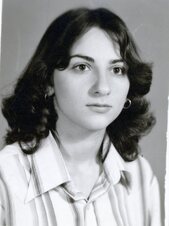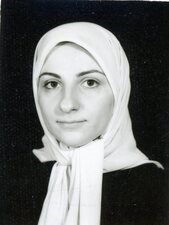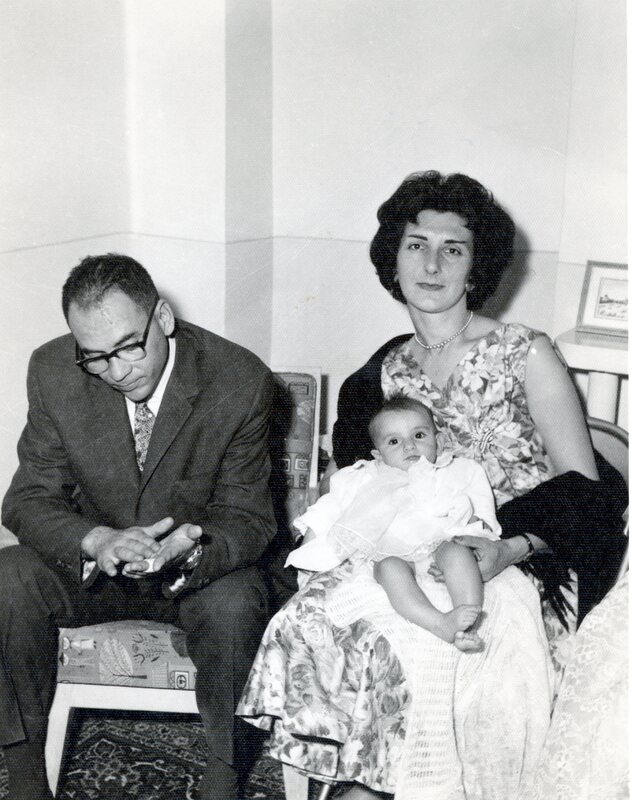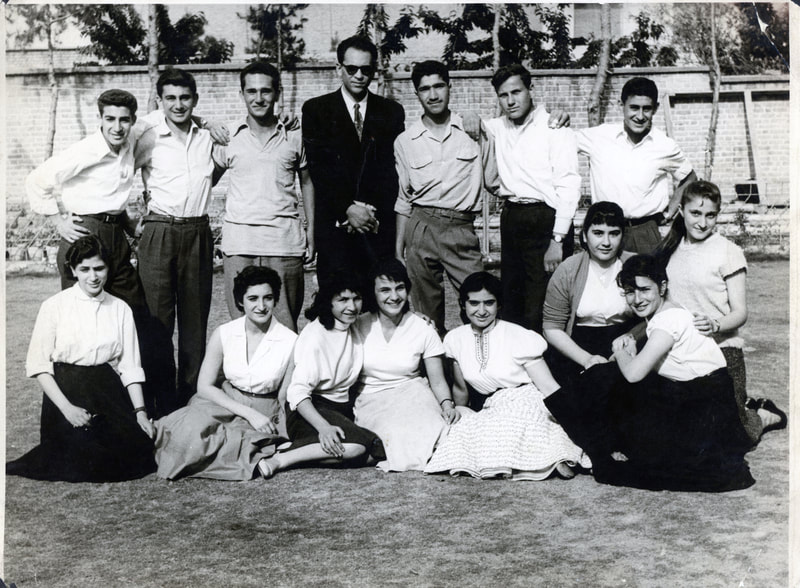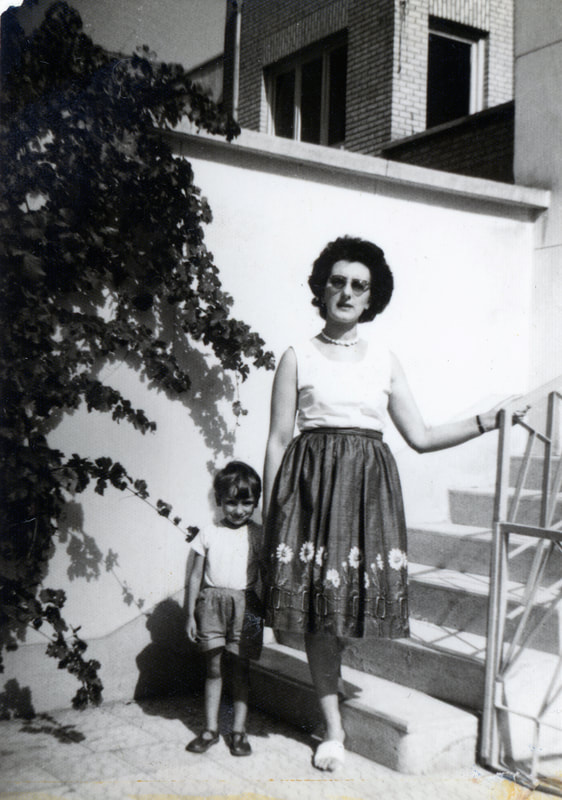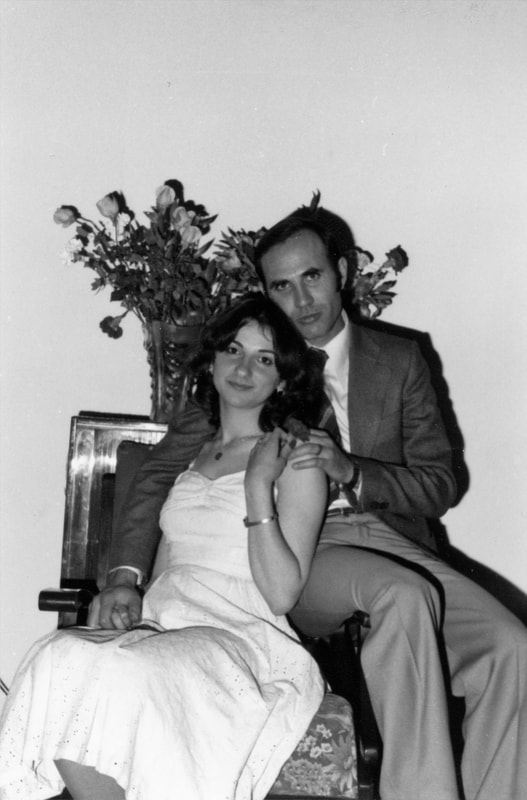Personal Story:
"I began public speaking when I realized that there is an immense interest in my story and unique background. "
I came to know the word 'Revolution' and its meaning as a teenager while reading my favorite book, A Tale of Two Cities by Charles Dickens. The monarch in this classic tale, Louis XVI, took the title of "King of the French," whereas our monarch, Mohammad Reza Shah Pahlavi, took the title of "King of Kings." (Shahanshah in Persian). Both ruled with absolute authority and implemented rapid reforms to transform their nations into an emerging leading power.
As a child and a teenager in pre-revolutionary Iran, it was "the best of times.'" Little did I know that months later, it would be "the worst of times," a revolution, war, clashes between the aristocracy and the peasants. Beginning in the late summer of 1978, the fomenting revolt of the masses gradually increased in fervor. Daytime in Tehran was chaotic as demonstrators burned tires in the streets, and the military fired into the crowds. Schools were shut down, and food, water, and electricity were rationed. Nighttime in Tehran was pulsating, as residents chanted Allahu-akbar from their rooftops.
On January 16, 1979, Mohammad Reza Shah Pahlavi left the country. Two weeks later, on February 1, 1979, Ayatollah Khomeini returned to Iran after fifteen years in exile. The Ayatollah became the Supreme Leader of an Islamic theocracy, where the clergy dominated all government spheres. I remained in post-revolutionary Iran for eight more years. During this time, I adapted to a flurry of political dictates and the implementation of new restrictions such as the law of mandatory veil for women enforced by the morality police, the American Hostage Crisis, the Iran-Iraq war, and much more. In 1987, I left Iran for the United States with my husband and two children.
As a child and a teenager in pre-revolutionary Iran, it was "the best of times.'" Little did I know that months later, it would be "the worst of times," a revolution, war, clashes between the aristocracy and the peasants. Beginning in the late summer of 1978, the fomenting revolt of the masses gradually increased in fervor. Daytime in Tehran was chaotic as demonstrators burned tires in the streets, and the military fired into the crowds. Schools were shut down, and food, water, and electricity were rationed. Nighttime in Tehran was pulsating, as residents chanted Allahu-akbar from their rooftops.
On January 16, 1979, Mohammad Reza Shah Pahlavi left the country. Two weeks later, on February 1, 1979, Ayatollah Khomeini returned to Iran after fifteen years in exile. The Ayatollah became the Supreme Leader of an Islamic theocracy, where the clergy dominated all government spheres. I remained in post-revolutionary Iran for eight more years. During this time, I adapted to a flurry of political dictates and the implementation of new restrictions such as the law of mandatory veil for women enforced by the morality police, the American Hostage Crisis, the Iran-Iraq war, and much more. In 1987, I left Iran for the United States with my husband and two children.
Biography: Jacqueline Saper is a writer, public speaker, commentator, and translator. Her memoir, From Miniskirt to Hijab: A Girl in Revolutionary Iran, is the winner of the Chicago Writers Association 2020 Book of the Year Award for Traditional Nonfiction. The book is also a finalist for the Eric Hoffer 2021 Book Award, the Feathered Quill 2021 Book Award, and the Clara Johnson 2020 Book Award.
Professor Jessica Emami at Marymount University has utilized the book in the Introduction to Sociology in a Global Perspective course. She quotes, "From Miniskirt to Hijab, illustrates the different ways religion, prejudice, discrimination, power, and minority statuses differ vastly from place to place but also share common features. Moreover, the book also teaches the strengths that diversity can bring to any culture." The Times of Israel article titled, Miniskirted No More featuring her story was the most popular article for the first week of December 2020. The Hebrew and Farsi editions of the publication also featured this article. The Chicago Tribune's Now article titled "From Miniskirt to Hijab is a story for our times," is named one of the top 20 best posts (out of more than 500) of September 2020. Chicago Sun-Times columnist Neil Steinberg praised her memoir as a book documenting her unusual mixed cultural upbringing amid the revolution.
Saper's opinion columns and essays appear in national and international publications, including Foreign Policy News, The Seattle Times, The Jerusalem Post, Breitbart, Aish, Sun-Sentinel, Persian Heritage, American Thinker, The Forward, Los Angeles Jewish Journal, and The Times of Israel. She has appeared on WTTW Chicago Tonight, FOX32, Channel 5 News U.K., Think Tank India, PBS News Hour, JLTV, WLS 890 AM The Jen Weigel Show, WCGO Radio Playtime with Bill & Kerri, D'Tycoon Show, The Tamar Yonah Show (Israel News Talk Radio), Off the Shelf TV, Wizard Talk Radio, and the Homa Sarshar Show (in Persian). Saper has been a featured speaker at many universities and organizations, including Harvard University, Tel Aviv University, University of Chicago, Indiana University Bloomington, Northwestern Univeristy, India's Chamber of Commerce & Industry, Australia's Sydney Jewish Museum, Simon Wiesenthal Center, CBS Film Festival, AJC Global Advocacy Program, and the Illinois Political Science Association Conference, among others.
Fluent in Persian and English, she serves as a translator/interpreter for the National Immigrant Justice Center, working with supervising attorneys on behalf of immigrants, refugees, asylum seekers. She has collaborated with the South Carolina Coalition Against Domestic Violence. Selected by Left Brain/Right Brain productions, Saper subtitled and translated the Alex and Ali movie, which won the Frameline39 Jury Award for Outstanding Documentary. She has cooperated with the Jewish Women's Theatre of Santa Monica, California, and has been a movie reviewer at the CBS Beth Shalom Film Series and the JCC Film Festival.
Saper earned the designation of CPA (Certified Public Accountant) from the Board of Examiners of the University of Illinois. She is a graduate of Northeastern Illinois University (summa cum laude) and the Hadassah Leadership Academy, designed to create women leaders through education and leadership training. In 2018, Saper received the Oakton College's Distinguished Alumni Award.
Professor Jessica Emami at Marymount University has utilized the book in the Introduction to Sociology in a Global Perspective course. She quotes, "From Miniskirt to Hijab, illustrates the different ways religion, prejudice, discrimination, power, and minority statuses differ vastly from place to place but also share common features. Moreover, the book also teaches the strengths that diversity can bring to any culture." The Times of Israel article titled, Miniskirted No More featuring her story was the most popular article for the first week of December 2020. The Hebrew and Farsi editions of the publication also featured this article. The Chicago Tribune's Now article titled "From Miniskirt to Hijab is a story for our times," is named one of the top 20 best posts (out of more than 500) of September 2020. Chicago Sun-Times columnist Neil Steinberg praised her memoir as a book documenting her unusual mixed cultural upbringing amid the revolution.
Saper's opinion columns and essays appear in national and international publications, including Foreign Policy News, The Seattle Times, The Jerusalem Post, Breitbart, Aish, Sun-Sentinel, Persian Heritage, American Thinker, The Forward, Los Angeles Jewish Journal, and The Times of Israel. She has appeared on WTTW Chicago Tonight, FOX32, Channel 5 News U.K., Think Tank India, PBS News Hour, JLTV, WLS 890 AM The Jen Weigel Show, WCGO Radio Playtime with Bill & Kerri, D'Tycoon Show, The Tamar Yonah Show (Israel News Talk Radio), Off the Shelf TV, Wizard Talk Radio, and the Homa Sarshar Show (in Persian). Saper has been a featured speaker at many universities and organizations, including Harvard University, Tel Aviv University, University of Chicago, Indiana University Bloomington, Northwestern Univeristy, India's Chamber of Commerce & Industry, Australia's Sydney Jewish Museum, Simon Wiesenthal Center, CBS Film Festival, AJC Global Advocacy Program, and the Illinois Political Science Association Conference, among others.
Fluent in Persian and English, she serves as a translator/interpreter for the National Immigrant Justice Center, working with supervising attorneys on behalf of immigrants, refugees, asylum seekers. She has collaborated with the South Carolina Coalition Against Domestic Violence. Selected by Left Brain/Right Brain productions, Saper subtitled and translated the Alex and Ali movie, which won the Frameline39 Jury Award for Outstanding Documentary. She has cooperated with the Jewish Women's Theatre of Santa Monica, California, and has been a movie reviewer at the CBS Beth Shalom Film Series and the JCC Film Festival.
Saper earned the designation of CPA (Certified Public Accountant) from the Board of Examiners of the University of Illinois. She is a graduate of Northeastern Illinois University (summa cum laude) and the Hadassah Leadership Academy, designed to create women leaders through education and leadership training. In 2018, Saper received the Oakton College's Distinguished Alumni Award.

